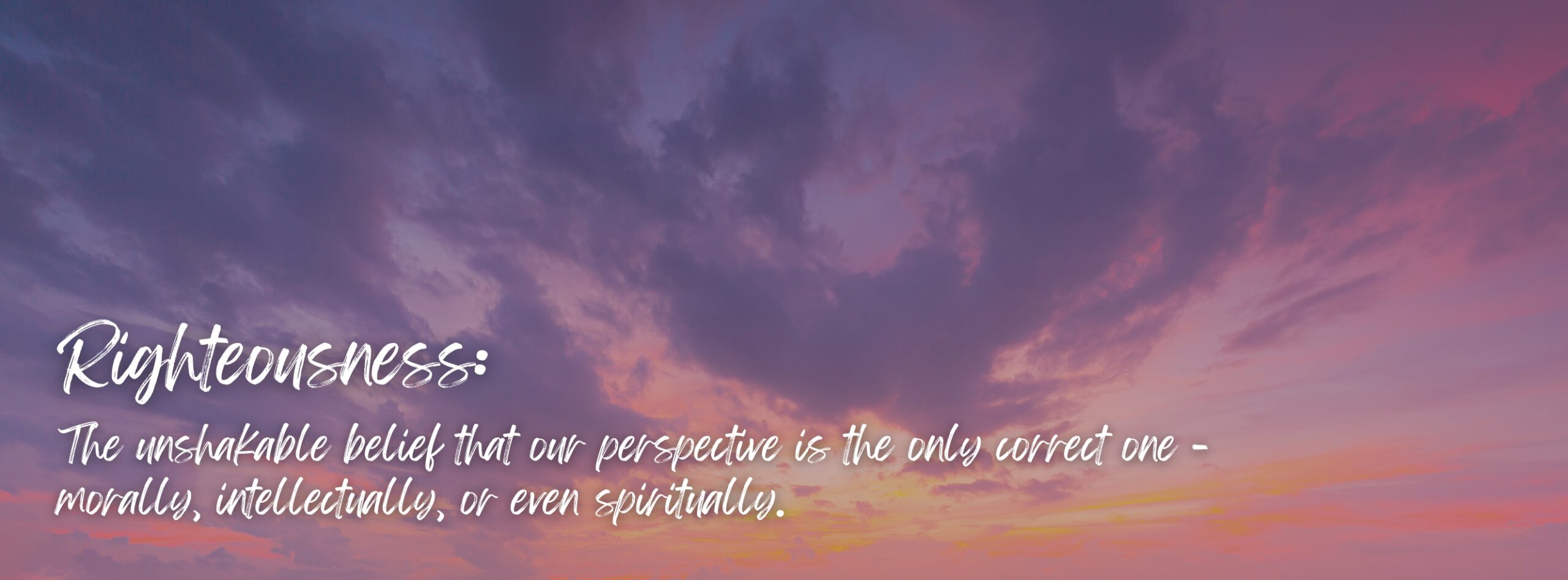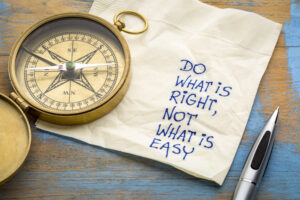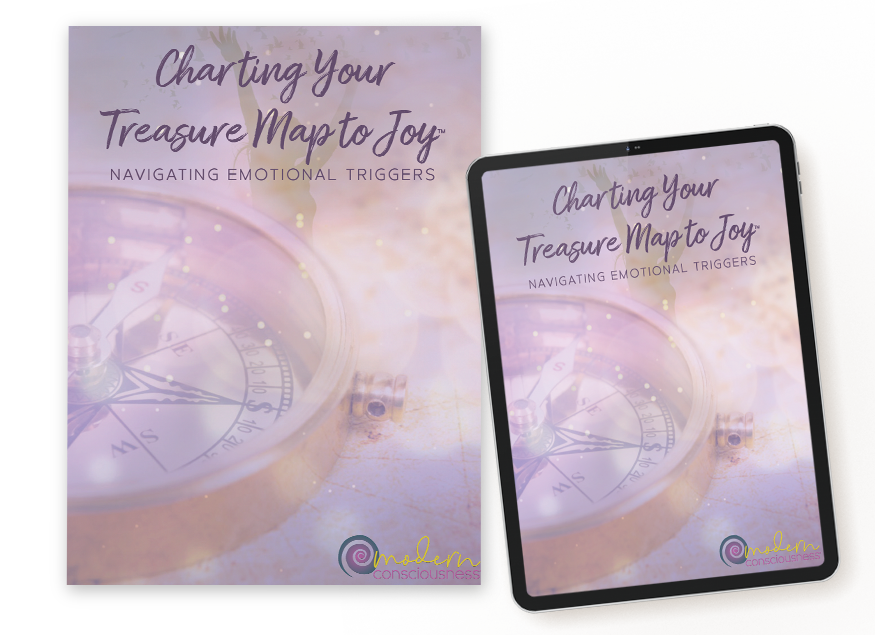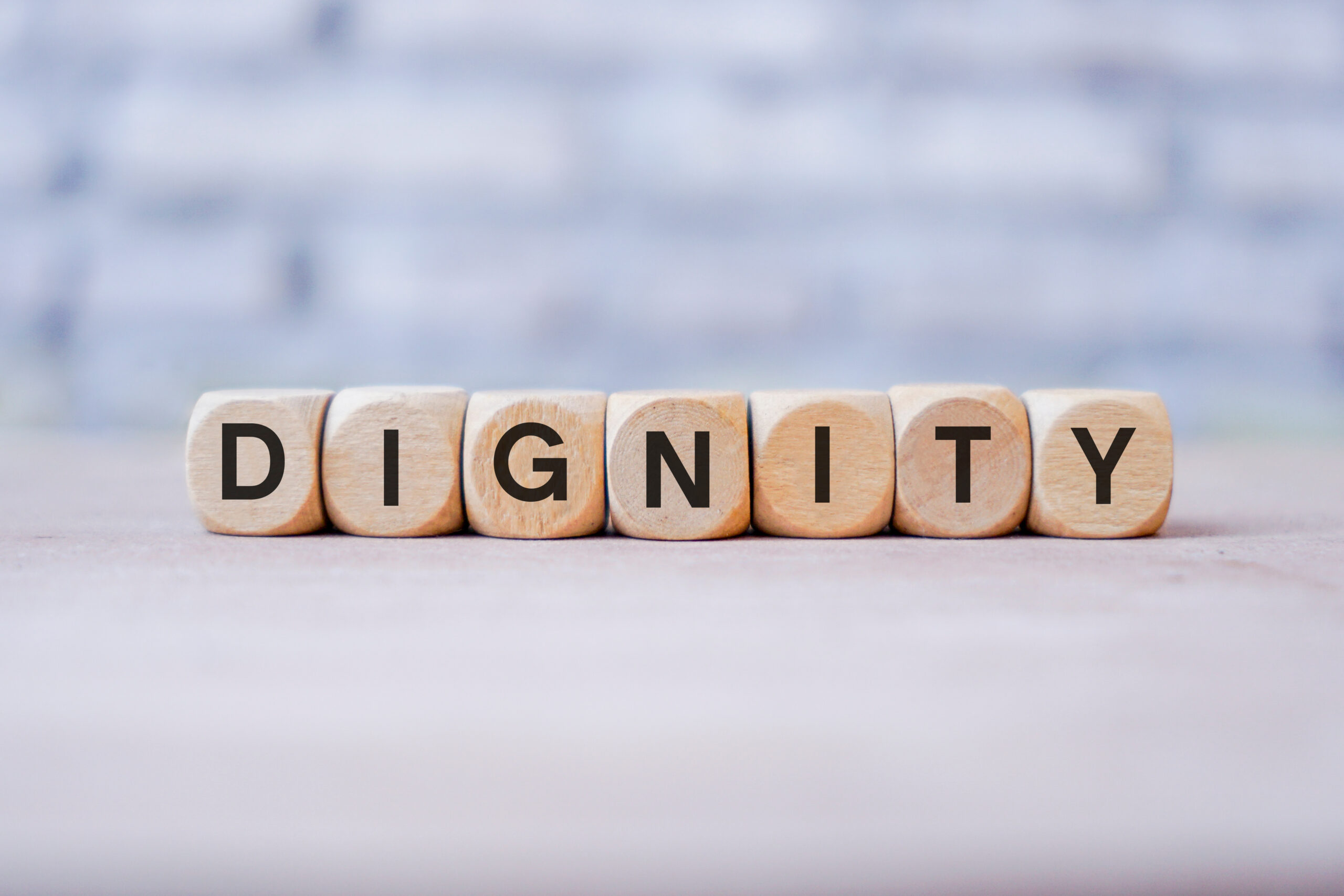In my last article, I mentioned that I would explore the themes of integrity and dignity in a future article—and now feels like the perfect time to do just that.
The recent election season brought these concepts into sharp focus, as heated debates, strong opinions, and a barrage of disrespectful behavior dominated social interactions. But what struck me most wasn’t the candidates or the media; it was how this behavior played out among everyday people—how we, in the intensity of the moment, sometimes sacrificed the very values we claim to uphold in ways we may not have considered.
Social media timelines brimmed with mocking memes, biting criticisms, and divisive rhetoric (still does it seems). This wasn’t limited to the usual suspects: the candidates themselves, the media, celebrities, anonymous trolls, or even the overly vocal strangers in a public comment thread. What we also witnessed came from family members who once stood for kindness, friends with whom we have shared heartfelt conversations and memorable experiences, and even business colleagues who otherwise champion professionalism.
I’ve personally seen people I respect share posts so harsh and inflammatory that it’s made me pause and question their values. Have you felt that too? The sting of losing respect for someone because their actions and words didn’t align with the person you thought they were? It’s deeply disheartening. And let me be clear: their choice of candidate wasn’t what I found disturbing—we’re free to choose the candidate of our choice in this country—it was what they chose to say and how they chose to say it.
This article isn’t about politicians or even the media. It’s about us—how we react, how we communicate, and how we treat each other in the wake of political division. When we get swept up in the righteousness of our beliefs or let frustration drive us to mock and belittle, we end up sacrificing something essential that many not have considered: our dignity.
What Is Dignity?
Dignity is the quiet strength of living in alignment with your values, even under pressure. It’s the courage to disagree without being disagreeable. In political and social discourse, dignity becomes the anchor that keeps us respectful and grounded even when opinions differ.
Yet, dignity can easily be lost in the heat of the moment. It slips away when we choose the sharp retort over thoughtful dialogue, when we prioritize being right over being kind, when we think that our opinion is the ‘right’ one and we’re entitled to share it vehemently, and when our actions stray from the person we aspire to be. And to be clear, what I’m talking about here is not someone’s choice of candidate, but choice of words and actions.
How We Lose Dignity
It’s easy to get caught up in the frenzy of political debate. Social media platforms, with their instant gratification and echo chambers, validate our beliefs and amplify our frustrations, making it even easier to lash out without considering the impact of our words. After all, if our post received 27 likes and 43 comments that align with our perspective, we must be right—right?
But losing dignity goes deeper than what we say or post in the heat of the moment. It’s really about how those actions align with who you aspire to be. At its heart, dignity is closely tied to integrity—it’s the consistency between your values and your behavior. When you act in ways that stray from your principles (and remember, your principles aren’t your opinions), you compromise both your integrity and your dignity and that creates internal stress as those responses are generally a result of being emotionally triggered. (You can read my previous blog if you’re curious about that).
All that being said, I thought it might be a good time to explore some of the most common ways our actions can undermine both our dignity and our integrity, often without us even realizing it.
The Trap of Righteousness
One of the most subtle yet destructive ways we lose dignity is through righteousness. Righteousness is the unshakable belief that our perspective is the only correct one—morally, intellectually, or even spiritually. It often comes with an implicit (or explicit) sense of superiority over those who think differently.
Righteousness is sneaky; it feels like conviction but often strays into judgment. It’s easy to mistake it for strength or standing up for what you believe is right, but in reality, it shuts down curiosity, empathy, connection, and conversation, which are all essential to overcome divisiveness. When we operate from a place of righteousness, we’re not seeking understanding or collaboration—we’re asserting dominance, claiming moral authority, and demanding agreement.
This behavior is often unrecognized by those who display it. It feels justified because it’s rooted in deeply held beliefs, values, or emotions. Yet, righteousness blinds us to our own flaws. It creates a barrier, preventing us from seeing the humanity in those who disagree with us. It inhibits compassion. Instead of fostering meaningful dialogue, it pushes others away, leaving division and resentment in its wake.
I would also like to point out that this very behavior mirrors the same dynamics that isolate, devalue, or oppress entire communities or groups of people. Think about that for a moment: when we cling to righteousness about politics, we engage in the same exclusionary mindset that fuels marginalization. By refusing to recognize the humanity in others, we perpetuate divisiveness. Period.

Claiming Authority
Righteousness doesn’t stop at personal conviction—it often evolves into something more insidious: the assumption of moral or even spiritual authority. This shift takes righteousness to another level, where one’s beliefs are not just correct but unassailable, often framed as superior to all others.
History is full of examples of what happens when moral or spiritual authority goes unchecked. Remember the Salem witch trials where individuals claiming divine insight or moral righteousness condemned others, often without evidence, to devastating fates? While today’s dynamics may not lead to literal trials, the same pattern persists: the belief that one holds a higher truth breeds exclusion, condescension, and judgment.
When someone believes they stand on higher moral ground, they can become dismissive or even hostile toward differing perspectives. This behavior leaves little room for compromise, nuance, or shared humanity. People on the receiving end feel judged, shamed, and undervalued—experiences that often lead to division rather than understanding.
But what about those standing on this moral high ground? When their authority or perspective is challenged, the reaction is often one of defensiveness or escalation. Instead of engaging in meaningful dialogue, they may double down on their beliefs, dismiss the challenger entirely, or resort to condescension and disdain. This response not only reinforces the divide but also creates an environment where genuine connection and collaboration are nearly impossible.
This dynamic—judgment on one side and defensiveness on the other—breeds cycles of misunderstanding and conflict. It’s not the kind of world most of us want to create. If we value dignity, integrity, and shared humanity, we must recognize the damage this behavior causes and commit to breaking these cycles.
Frustration and Anger
Finally, when we act out of frustration or anger, we risk betraying our own values. The sharp meme, the biting comment, the public shaming—they may feel satisfying in the moment but actually reflect more about us than the person or idea we’re attacking. This behavior diminishes our dignity by reducing us to reactions rather than thoughtful responses. At the same time, integrity is compromised because our behavior no longer aligns with the principles we claim to uphold.
We may not realize how these actions deeply reflect on our character or how they might hurt someone who sees the world differently. It’s not just the target of our critique who’s impacted; it’s everyone observing our behavior—friends, family, colleagues—who may begin questioning the values we claim to hold.
Reclaiming Our Dignity
The good news is that dignity, once compromised, can be reclaimed. It starts with a moment of reflection—a willingness to pause and honestly evaluate how your words and actions align with the person you want to be. You might begin by asking yourself the following questions, preferably before you open your mouth or press the send button:
- Does my response reflect both my personal values and my conscious opinion?
- Am I proud of how I am handling this or responding to this?
- Am I treating others how I wish to be treated?
- Is what I’m posting/saying verifiably true?
- How does posting this make me feel? (Note: If it makes you feel smug, superior, self-righteous, or like you’re “proving a point,” it’s worth reconsidering. These feelings often indicate that the post is more about feeding your ego than fostering understanding or connection—and it’s probably not serving you or others in a meaningful way.)
These questions, rooted in integrity, guide us back to a place of dignity. They encourage us to replace reactive behavior with thoughtful, intentional responses that align with our highest values.
The Golden Rule: A Compass for Integrity and Dignity
At the heart of reclaiming dignity is the timeless principle of the Golden Rule: Treat others as you would like to be treated. This simple yet profound idea serves as a moral compass, reminding us that our interactions—no matter how divisive or emotional—should be rooted in respect, empathy, and fairness.
Living by the Golden Rule doesn’t mean we avoid hard conversations or dilute our beliefs.  Instead, it calls us to approach those conversations with grace. It challenges us to seek understanding rather than dominance, to choose kindness over cruelty, and to hold ourselves to the same standards we expect from others.
Instead, it calls us to approach those conversations with grace. It challenges us to seek understanding rather than dominance, to choose kindness over cruelty, and to hold ourselves to the same standards we expect from others.
When we embody the Golden Rule, we naturally protect our dignity because we act in alignment with our values. At the same time, we create space for meaningful dialogue and mutual respect, even when opinions differ.
By reclaiming our dignity, we not only strengthen our own sense of integrity but also contribute to a more respectful, compassionate, and connected society.
Closing Thought
Ultimately, reclaiming dignity isn’t just about us—it’s about the ripple effects our actions create. When we align our behavior with the Golden Rule, we uplift not only ourselves but also those around us. In a world often divided by differences, this simple principle has the power to bridge gaps, foster understanding, and bring us closer to the person we aspire to be.
How will the world change? By being the change you wish to see in the world. Wise words often attributed to Mahatma Gandhi.
How to achieve peace? BE peace in your heart.
I firmly believe that world peace begins with individual transformation. If enough people commit to cultivating a peaceful heart and an attitude of gratitude, the collective impact could shift societies. It’s not just an idealistic dream—it’s a practical, actionable path forward and the Modern Consciousness® way!
Are Current Events Triggering You?
If recent events—or how people have responded to them—have left you feeling overwhelmed, frustrated, or emotionally triggered, you’re not alone. Political and social tensions can challenge even the calmest among us, making it harder to stay grounded and aligned with our values.
That’s why I created Charting Your Treasure Map to Joy: Navigating Emotional Triggers—a powerful workbook designed to help you identify and manage emotional triggers, regain your sense of peace, and take control of your reactions.
Discover how to navigate your emotions with clarity and intention so you can respond to life in a way that aligns with who you truly are.





